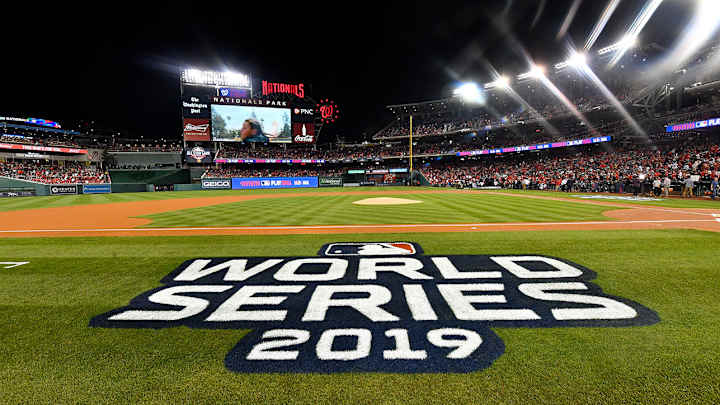Should MLB Still Play an Official World Series?

MLB is heading toward a season unlike any other, if it's heading toward a season at all. We don't know how many games the league can safely play or even where they can play them.
But no matter the terms of the season, should it still end in a regular, best-of-seven World Series? Do a minimum number of games need to be played to reach the usual endpoint of every other season? Does it even matter when the final series of the year is called? SI's MLB staff weighs in:
Tom Verducci
I don’t care how short the regular season might be. It’s imperative that baseball play a full postseason with a World Series.
Start with the economics–of course. Much of the national television money is backloaded. The postseason represents a huge chunk of the payout to all 30 teams. After taking a hit in the regular season, they will need whatever they can from the postseason pool to recoup some of the losses (which is why, as in 1981, you’ll probably see expanded playoffs). It’s also a ratings bonanza compared to most prime time programming (if not what it was in the pre-digital days).
That’s the practical reason. But put that aside. Baseball needs the World Series for the sake of tradition and continuance–and so do we. The hole left in the 1994 season is a reminder of a year without the World Series. We shouldn’t care if we have some ad hoc season or tournament that gets us to a postseason. Like the rest of our lives, we make do with what we can. Give me a 30-game regular season and I still want the postseason and the World Series. We all know it will not be a “normal” championship. So what? In these times, we do the best that we can.
Stephanie Apstein
If we’re going to ask these guys to risk their lives in pursuit of baseball, I think we should at least attempt to make the games mean something. Call it the World Series. Otherwise what’s the point? It’s hard to imagine the players will put themselves through whatever it will take to bring us baseball this year in service of winning something called the Pandemic Classic. No, it won’t mean the same thing to people as the 1975 or 2001 or 2019 World Series did, but the 2017 World Series doesn’t anymore, either.
Emma Baccellieri
Whatever sort of playoff we eventually have is bound to seem like it has an asterisk, I think. It won't take a formal note or a new name for people to understand that. Down the line, baseball records from this year may be somewhat like those from World War II—even decades later, people will just know what weird stats mean for 2020, just as modern fans know what it means when a player was absent from 1943 to 1945. I imagine the same will hold for the World Series. It will not be normal, no matter how long (or short) the season ends up being, and that will be understood. But I don't think there's any harm in putting it in the official record and keeping the name "World Series." History can decide how it wants to differentiate this season. For now, we can take what we can get.
Connor Grossman
I wouldn't be outraged if MLB staged some sort of "season" or tournament this year and ended it without an official World Series. Playing as many games as possible and hosting a Fall Classic should be the goal, but if MLB is only able to play for a month or so, for example, playing a final "championship" series for pandemic relief might be a more sensible route.
Though ultimately, as Emma noted above, history will decide how it wants to remember this season. If that's with a 30-game season and a best-of-seven World Series, so be it.
Matt Martell
If there is a baseball season there should be a World Series, even if the postseason format itself is altered. MLB can't have a season end without a team hoisting the Commissioner's Trophy.
That said, there will most likely be questions about the authenticity of a championship if the season is fewer than 70-80 games. That's OK. This can be part of the game's rich history, one of many lines in the record books that creates conversation and debate. These unanswerable questions connect children with their parents and grandparents, and the grown-ups' response can be something much more interesting than the unsatisfactory "because." They can tell future generations of fans about the year baseball staged a thrilling season to inspire, entertain and comfort a country as it returned to normalcy after recovering from a pandemic. That's a story I'd want to tell the grandkids one day.
Michael Shapiro
I think any start to the 2020 season should have the end goal of a true playoffs and World Series, so I’m willing to be lenient on the number of games necessary to complete the regular season. Perhaps an 80-game schedule makes sense for MLB, or even a double-round-robin schedule with 58 games. It’s hard to envision the 2020 season feeling normal by any stretch of the imagination. But the league should still want a true champion. Let’s put the minimum at 58-games and a near-full postseason as the requirements for a valid 2020 season.
